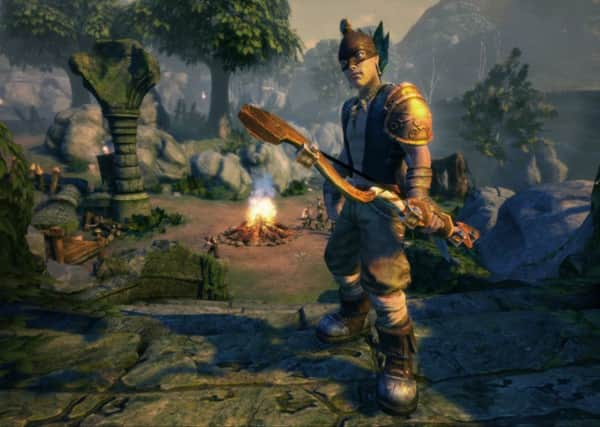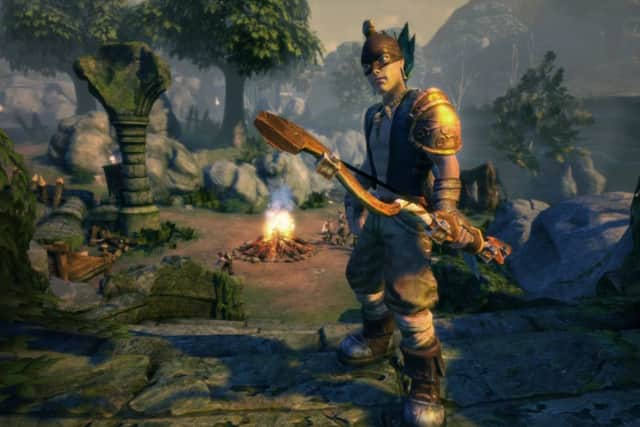Game review: Fable Anniversary (Xbox 360)


Fable Anniversary (Xbox 360)
Score: 7.9 / 10
That, at least, was according to Peter Molyneux, whose propensity for feverish prognoses lends the writings of Nostradamus an air of authoritative discretion. The title’s genesis can be traced as far back to the turn of the millennium when, under the working title of Project Ego, it was the subject of wild-eyed proclamations by the veteran designer, who promised “the best game ever.”


As time wore on and the dubiety of the press and public grew, his belief could not be crushed. Nearly every month heralded a fresh serving of hype as the maverick developer sold the game with the fervour of a door-to-door bible salesman in his first day on the job. When the first visitors entered eventually entered the world of Albion in autumn 2004, they found an immersive and organic action RPG whose aspirations of grandeur were cut short by a hackneyed plot and basic design flaws.
Advertisement
Hide AdAdvertisement
Hide AdIn hindsight, few people have come to regard the game as a classic, but that is not to doubt the influence it had and continues to have to this day. Fable’s core premise - the player acts as the protagonist’s moral compass in a world that respond accordingly to individual choices - has become a bulwark of the genre and its DNA is writ large in the work of developers like Bethesda and Bioware.
Ten years on, Lionhead has decided to inform a new audience of this legacy courtesy of an HD remake similar to the revamp afforded Master Chief in 2011’s revamp of the original Halo title, another stalwart of the first Xbox. Even after a few minutes, the decision is vindicated, as Albion’s bustling agrarian society reveals itself in all its irreverent glory.
An excellent voice cast, bawdy humour and a keen eye for the eccentricities of British life remain the game’s greatest virtues. Even though the 10 hour duration of its main quest is conservative by modern standards, its universe is diverse and never without charm, qualities that pop out of the screen with this redux. Improved draw distances and textures add to the expansiveness of Albion, while overhauled models ensure the title’s visuals are brought up to speed without ever threatening to rival Fallout or Skyrim.
The biggest improvements are to the control system, which borrows liberally from Fable’s sequels. The original’s clunking interface is now infinitely more intuitive, particularly when engaged in battle. Similarly, in a nod to the new, Smartglass technology allows you to see a map of Albion on a tablet, a feature that is more useful than it might appear.
Elsewhere, there are aspects to the game that show its years, such as an opening tutorial that is as dull as it is desultory, an erratic camera and some dated facial animations. Far and away the most obvious indicator of its age is the idea of ethical choices presented to the player. Regarded as bold and enterprising a decade ago, they feel frustratingly limited nowadays, with a forked path offering a route towards good and one towards evil. Shades of grey do not come into it.
To change this, mind you, would be to irrevocably alter the game, and Lionhead’s decision to retain the mechanic demonstrates a desire to avoid accusations of presenting a new head and a new handle as the same broom. For all that its own sequels and franchises like Mass Effect show up the faults in Fable, the developers deserve praise for the restraint and respect they have shown in ironing out only the most unsightly bumps in a game that celebrates idiosyncrasy.